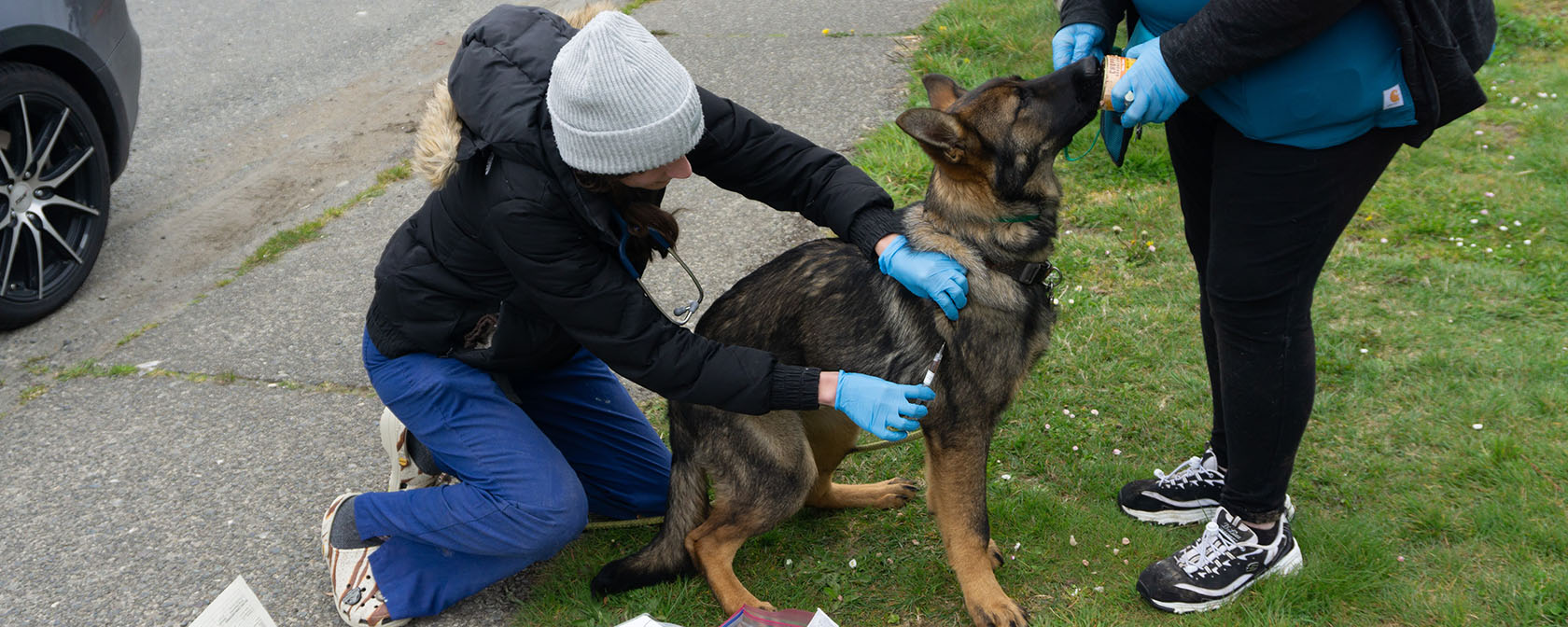By Sara Amundson and Kitty Block
Volunteers are the beating heart of the animal protection movement, and their engagement is a lifeline for animals. So much of the good we can accomplish flows directly from the selfless service of people who give their time, energy, expertise, labor or funds to the cause. It makes all the difference.
We see it every day.
We see it in the dedication of those who sign up for shifts at shelters to care for animals removed from large-scale cruelty or disaster situations. In the wisdom of attorneys whose pro bono support helps us to prevail in consequential litigation or public policy matters. In the compassion of veterinary professionals who provide direct care or speak out in support of animal protection. In the upbeat chatter of phone bankers trying to boost support for pro-animal legislation. In the skillful analysis of data that underpins a puppy mill or trophy hunting initiative.
We see it everywhere, in every country, in every community. And we couldn’t be more grateful.
Our notion of volunteer service is broad, encompassing all kinds of animals, all kinds of animal issues, and all kinds of organizations—local, regional or national. It all helps, and we don’t hold any form of volunteerism in higher regard than another. We want to see volunteerism flourish in every possible way.
Volunteerism is the essence of engaged citizenship. Whether you’re ladling out food at a soup kitchen, helping children improve their reading skills at a youth center, handing out leaflets on a street corner, sending a letter to the editor, or speaking to a lawmaker about humane issues, you’re involved in civic engagement. These are all expressive acts through which we signal our views about what matters in the world, and what kind of world we’re trying to create.
A generous spirit flows through all these activities, a spirit that is part of the very fabric of our society. We give, and we act, because we hope—and we know—that things can get better.
In nearly every nation on earth, volunteers and nonprofit organizations represent the bedrock of civil society, providing important services and public goods that governments, markets and institutions are unable or unwilling to provide. In the years to come, we must do still more to encourage volunteerism for animals throughout the world.
Last year, across our family of organizations, 1,948 volunteers contributed over 73,500 hours, valued at $2.4 million, to the cause. This included more than 300 volunteers who supported our animal rescue teams, nearly 600 policy volunteers who took actions in support of our public policy goals, and dozens of phone banking volunteers who supported priority campaigns. The expertise of our staff who manage these strong, effective programs helped to ensure our reaccreditation as a Service Enterprise by the Association of Leaders in Volunteer Engagement, in recognition of our efforts to leverage the generosity and service of volunteers across the full range of our work.
Learn how to become a volunteer >>
If you would like to expand your commitments, here are a few suggestions:
- Aid animals in the aftermath of a natural disaster or other emergency as an Animal Rescue Team volunteer.
- Advance our legislative priorities by becoming a policy volunteer.
- Make calls from home to Humane World supporters to advance critical campaigns as a phone banking volunteer.
- Help provide services to remote communities as a Rural Area Veterinary Services volunteer.
- Engage in the direct care of rescued animals and help in other ways at Black Beauty Ranch in Texas.
- Sign up to become a Humane World for Animals ally to receive email updates and quick actions you can take to help animals.
- Learn more about opportunities to volunteer at Global Volunteer Month and National Volunteer Week.
The power of volunteer service is something we value, precisely because we know how much value it brings. The challenges we face in our mission to achieve lasting, positive changes for animals are numerous and complex. The more people we can bring to our cause, the sooner we’ll see those changes take hold. We’re in it together, and together, we can make this world a better one for animals, and for ourselves.
Kitty Block is CEO and president of Humane World for Animals.




